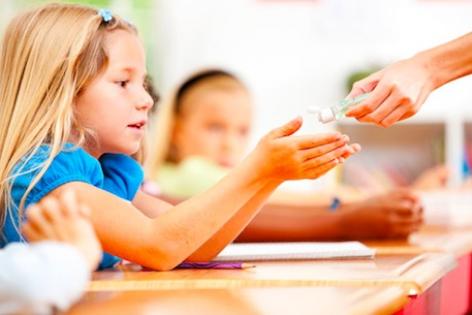Using hand sanitisers in classrooms doesn't reduce the number of sick days kids have, say New Zealand researchers.
A team at the University of Otago compared two groups of school classrooms that used hand sanitiser and some classrooms that didn't.
The team recruited 68 primary schools and gave some of them alcohol-based hand sanitiser dispensers to have in the classroom and left others without, with all participants also given a 30-minute hand hygiene education session.
The team measured the number of sick days the children took and found that the classes who used hand sanitisers were no healthier.
They took just as many sick days for things like colds and gastro as the children in classrooms without hand sanitiser.
They also found it did not alter the length of school absence or the number of times the child or another family member got sick.
"The provision of hand sanitisers in addition to usual hand hygiene in primary schools in New Zealand did not prevent disease of severity sufficient to cause school absence," the authors wrote in the journal PLOS Medicine.
But the researchers pointed out that the study was done in the midst of an influenza epidemic so there were lots of public health messages being transmitted about the importance of hand washing for preventing illness.



















__small.png)










